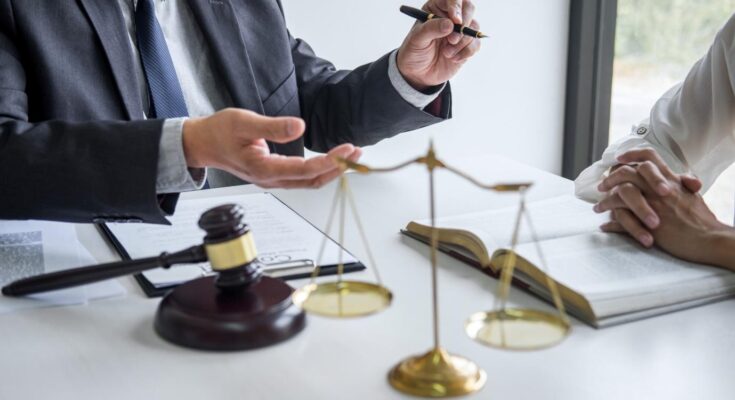Skilled criminal defense attorneys are cornerstones of the judicial order, offering a thorough and robust parry to people accused of a crime or indicted for lacking proper protection. Through legal knowledge and experience with the complexity of the criminal justice system, these legal counselors offer essential direction and representation to their clients at every stage during the legal process. They take on various activities like investigation, construction of defense strategies, and so on to secure the rest of their clients’ rights and interests. In addition to trial courts, their areas of proficiency cover negotiation processes, legal-orientated research, and deep knowledge of structural nuances in legal proceedings.
Here’s a detailed breakdown of their role:
Legal Expertise: Experienced criminal defense attorneys from the Law Offices of Bryan R. Kazarian understand the fine intricacies of statutes, precedents, and legal procedures. They realize legal procedures are complex and tedious. Therefore, they can competently manage the system to receive justice for their clients. In particular, their expertise enables them to advise on the area of a specific case, give sound legal advice, and develop a specific defense strategy based on the unique feat of the case.
Case Evaluation: One of the first duties undertaken by a criminal defense lawyer is properly investigating the facts of the case against his client. They ponder the evidence to check if the prosecution’s case is worth being based on or if it’s weak and has some inconsistencies. This critical assessment guides how they can defend themselves appropriately and makes it possible for them to choose the most suitable strategy for their circumstances.
Protection of Rights: Criminal defense lawyers in the US are a crucial part of the legal processes and are zealous supporters of their client’s constitutional rights. They guarantee that clients are treated fairly and that law enforcers and prosecutors safeguard the stipulated standards and measures. For example, it encompasses the necessary safeguards against illegal search and seizure, the protection against self-incrimination, and speaking up for due process rights.
Negotiation with Prosecutors: A seasoned defense lawyer bargains with prosecutors and gets the thirst for blood for their clients. These options conceivably worry about reducing extremely severe charges, securing more lenient sentencing recommendations, or even diverting into alternative sentencing programs, including probation or diversion. In some cases, good negotiating capability can lift charges or impose low fines on offense-honoring people.
Courtroom Advocacy: Lawyers for defense are, and should be, the focal point of the process of such cases in court for their clients. They state the facts of legal arguments, question witnesses, and cross-examine prosecution witnesses in whatever way they can to cast doubts in the listeners’ minds. To get a good result in court, it is not sufficient to have only legal knowledge; accurate presentation skills and the ability to respond promptly are also essential.
Emotional Support: Being charged with a crime while thrust into a situation draining emotionally for the defendant and his or her family is not easy to endure. Experienced defense lawyers act as emotionally resourceful people who give the clients needed comfort and encouragement throughout the legal system. They assist by giving advice, empathy, and motivation; thus, the clients can find their way through the commotion and uncertainties that ensue upon facing criminal charges.
Appeals and Post-Conviction Relief: In case of an adverse ruling, skilled criminal defense attorneys can still make Congress listen to their client’s case if they appeal through appeals. For example, they read trial court records, assess the legality of the proceedings or substantive misconduct, and prepare appellate briefs outlining the grounds for reversing or modifying the conviction. Moreover, defense attorneys could utilize other post-conviction relief opportunities, such as writs of habeas corpus or pardon and commutation appeal cases after conviction.
Final Thoughts
The job of lawyers who counsel on criminal cases is multifaceted, not confining those lawyers to strictly legal advice but also involving the functions of advocacy, negotiation, emotional support, and investigation. In that way, this relentlessly striving advocates for the rights and interests of their clients so that the aim of fair play and objective justice end up equally prevailing.



